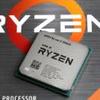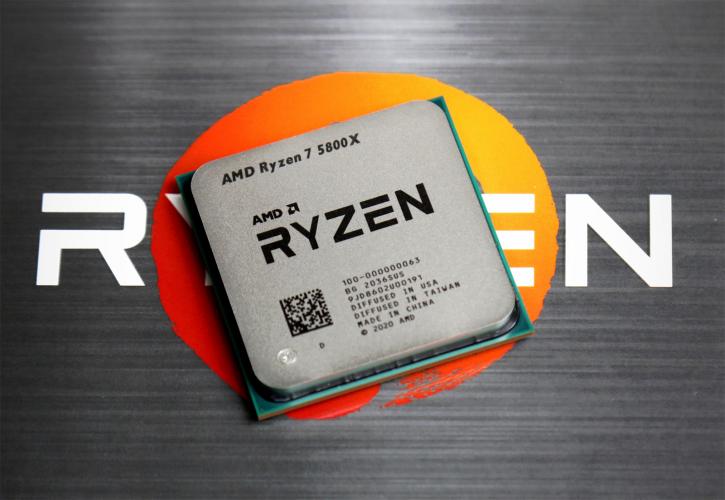Conclusion
Final Words
And boom! Hilbert drops da mic and is ready for the weekend! It's been a tiresome release as the launch sampling was completely screwed up this round. The 5600X and 5800X arrived just yesterday, deliberately delayed whilst others received the last two procs a day earlier and then other samples from distributors. None-the less after working through the evening yesterday and the remainder of this day, we can now present you the conclusion for that last processor tested, the 8-core Ryzen 7 5800X. I think it is safe to state that wherever ZEN3 you possibly opt to purchase, you'll like it. The Ryzen 5000 (Zen3) architecture is very satisfying. It is just swaying to see that AMD manages to get IPC up again, moving to a single 8-core architecture per die, tackling that last bit of uncertainty, gaming performance. And yes, all die's are the same, so in this proc 2 cores are simply disabled. Which was a bit of am Achilles heel on Rzyen in CPU limited game performance. There's no doubt that AMD is now offering the fastest processor series in the consumer market, and it is imposing to see what they managed in just three years. Now, we're not going to recommend you to upgrade if you are on Ryzen 3000. But on series 1000/2000 .. well, why not? The good news is that the Series 400 motherboards will support these CPUs starting January 2021 with selected motherboards. And yeah, AM4 has come a long way, alright. With future changes coming up on DDR5 and PCIe gen 5.0, we see perhaps one more refresh series (ZEN4, a refresh of ZEN3) to be AM4 compatible, but thereafter surely AM5 will be introduced.
Price and value
Gaming performance
Last-gen Zen2 Matisse based processors already made up for a lot of the deficiencies in gaming compared to Intel. Right now, with ZEN3, that challenge has vanished. We state this in all our Ryzen 5000 reviews, but individual wins per brand and processor segmentation (mainstream, high-end, and enthusiast). So that means that with a mighty graphics card, this processor on average can feed frames as fast as Intel's equivalent. Even at six cores, your gaming experience will be great, albeit we feel that 8-cores is the norm these days for a properly nice gaming PC and overall PC desktop.
DDR4 Memory
Short answer, with up to 4000 MHz DDR4 memory, you're good/optimal to go. Memory compatibility should not and likely will not be an issue as long as you stick to recently released DIMMs. I'll keep reiterating this, but there are some good Ryzen optimized kits out there. With ZEN3, you can go higher in DDR4 clock frequency if you want to. We stick to our advice that you are good to go with up to 3600 MHz and CL14 or CL16 or lower. If you want to go a notch higher, up to 4000 MHz is what you could do best. After that frequency, a 2:1 divider kicks on the interconnect that will affect the Infinity Fabric bandwidth; even then, the perf differential would be modest but optimal up-to 4000 MHz, the best bang for buck = 3600 MHz. Oh, and yes, lower latency memory is always better, e.g., CL14, but more expensive.
Energy efficiency
These processors are fabbed at 7nm; you may see some exceptional energy efficiency; the 105 Watts listed for the 5800X, 5900X, and 5950X was not necessarily something we could measure anywhere and thus remains relative; of course, that is marvelous all by itself. The Ryzen 7 5800X, is a 105W TDP based processor. And albeit TDP is a rather fluent thing these days, that remains impressive.
Conclusion
Your purchasing choices need to be based on the budget you are willing to spend and, of course the workloads that you have. I don't think the 5900X and 5950X will be extremely popular for the generic public (and don't get me wrong here as these are AWESOME processors), no I think the majority of people will opt for a 6- or 8-core part. Gaming wise both are high up there in the FPS charts combined with even the fastest GPUs; realistically right now, a 6-core part is fine for pretty much any game. However, and I have been stating this for a while now, raw core times are changing, and if you like to be a little more future proof, eight cores are the way to go for that new sweet spot in gaming and overall workloads. That however, does administer a 150 USD price differential (compared to 5600X) which I am not too happy about. Realistically this 8-core part should have been 399 USD. However, I anticipate another 8-core part, as there's a gap in-between 5600X and 5800X naming wise, yes a 5700X is of course that pending and desired 399 USD part. The entire pricing structure indicates that such an 8-core proc is pending. For now, the only option though, is the 5800X and you get your 16-threads, super-fast Desktop PC performance, and excellent gaming performance. Don't forget that AMD also offers an infrastructural advantage with full PCIe Gen 4.0 compatibility throughout the eco-system. If you do not require a many-core processor with heavily threaded tasks and workloads, then the 5600X can make a lot of sense. But future-proofing wise, 5800X does make more sense. It has the fastest base clock at 3.8 GHz and boosts towards 4.7 GHz on several cores based on workload. It is continuously fighting the Core i9 10900K even. Seen overall, increased IPC, simply put, makes everything faster. That goes from browsing Guru3D towards editing in photoshop towards gaming. As such, it's difficult to argue this processor series. We feel a 6-core 5600X or 8-core 5800X are that sweet spot procs to get. However, we'll be eying a potential 5700X, as we think the lineup needs a 399 USD 8-core part. If you like to save a bit more, pick up a compatible B450 (BIOS support starts in January 2021!) or buy now and get a mandatory and more expensive B550 motherboard. With B450 for not too much money, you can build yourself a fabulous performing PC with a whole lotta gaming performance and an astonishingly luscious Desktop PC experience overall. Highly recommended, for sure.
You can read up on Ryzen 5900X (12c/24t) and 5950X (16c/32t) right here if you have not done so. The Ryzen 5 5600X review can be read here.
- Sign up to receive a notification when we publish a new article
- Or go back to Guru3D's front page.



